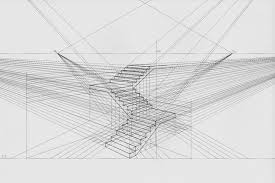perspective
英 [pəˈspek.tɪv]
美 [pɚˈspek.tɪv]
- n. 观点;远景;透视图
- adj. 透视的
使用频率:

记忆方法
将“perspective”分解为“per”+“spect”+“ive”。想象“per”是“every”的缩写,表示“每一个”,“spect”联想到“spectate”,即“观看”,“ive”表示“的”。所以,可以记忆为“每一个观看的角度”,这样的视角即代表“perspective”。
以上内容由AI生成, 仅供参考和借鉴
中文词源
perspective 观点,态度
per-,完全的,-spect,看,词源同spectate,specter.引申词义观点,看法,态度。
英语词源
- perspective (n.)
- late 14c., "science of optics," from Old French perspective and directly from Medieval Latin perspectiva ars "science of optics," from fem. of perspectivus "of sight, optical" from Latin perspectus "clearly perceived," past participle of perspicere "inspect, look through, look closely at," from per- "through" (see per) + specere "look at" (see scope (n.1)). Sense of "art of drawing objects so as to give appearance of distance or depth" is first found 1590s, influenced by Italian prospettiva, an artists' term. The figurative meaning "mental outlook over time" is first recorded 1762.
权威例句
- 1. It's the collision of disparate ideas that alters one's perspective.
- 是迥然不同的观点之间的碰撞改变了人们的看法。
- 2. The Telegraph puts the union in a historical perspective.
- 《电讯报》从历史的角度对该工会进行了报道。
- 3. It helps to put their personal problems into perspective.
- 这有助于正确看待他们的个人问题。
- 4. He was clear-sighted enough to keep a sense of perspective.
- 他很有见识,能保持正确的判断力。
- 5. I let things get out of perspective.
- 我没有客观地看问题。
